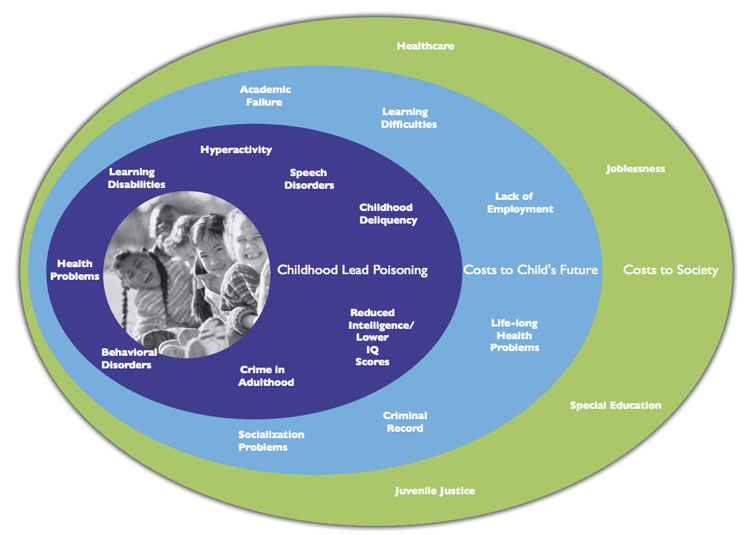Lead poisoning occurs when lead builds up in the body, often over a period of months or years. Even small amounts of lead can cause serious health problems. Children under the age of 6 are especially vulnerable to lead poisoning, which can severely affect mental and physical development. At very high levels, lead poisoning can be fatal.
Initially, lead poisoning can be hard to detect — even people who seem healthy can have high blood levels of lead. Signs and symptoms usually don’t appear until dangerous amounts have accumulated.
Lead poisoning symptoms in children
The signs and symptoms of lead poisoning in children may include:
- Developmental delay
- Learning difficulties
- Irritability
- Loss of appetite
- Weight loss
- Sluggishness and fatigue
- Abdominal pain
- Vomiting
- Constipation
- Hearing loss
Lead poisoning symptoms in newborns
Babies who are exposed to lead before birth may experience:
- Learning difficulties
- Slowed growth
Lead poisoning symptoms in adults
Although children are primarily at risk, lead poisoning is also dangerous for adults. Signs and symptoms in adults may include:
- High blood pressure
- Abdominal pain
- Constipation
- Joint pains
- Muscle pain
- Declines in mental functioning
- Pain, numbness or tingling of the extremities
- Headache
- Memory loss
- Mood disorders
- Reduced sperm count, abnormal sperm
- Miscarriage or premature birth in pregnant women





